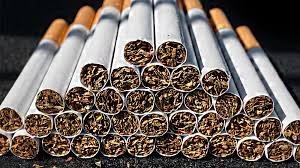Islamabad :- Pakistan has a capacity to generate 27,000 bln rupees in terms of taxes and we will not need IMF support if we only collect half of this tax. This was stated by Defence Minister Khawaja Muhammad Asif at the launching session of the research report titled ‘Illicit Cigarette Trade in Pakistan – Current Situation and Way Forward’, produced by the National University of Science & Technology (NUST).
Khawaja Asif further said that it is absolutely saddening that counterfeit cigarette manufacturers are members of the assemblies and they watch guard their business’s interests through these assemblies. Two major cigarette manufacturers are contributing Rs170b in taxes while the share of all the other cigarette manufacturers is just 2 billion rupees, he added. Khawaja Asif quoted ex Chairman FBR Shabbar Zaidi that during his tenure when FBR planned to implement tax on the cigarette industry, at that time Speaker National Assembly Asad Qaiser pressurized Shabar Zahide not to implement taxes on the cigarette industry.
NUST research report on the tobacco sector revealed that Pakistan is losing 310 billion rupees annually due to tax evasion in the tobacco sector. During session, audience was briefed on the complex challenges in administration, revenue collection, policy coordination, and market dynamics, of the cigarette industry which are causing significant tax revenue losses for the national exchequer. Additionally, the inadequate enforcement of existing laws, rules, regulations, and policies has further bolstered the illicit sector.
While quoting efficacy of the Track and Trace System (TTS) under the government’s enforcement regime, the report mentioned that the TTS had been aimed at reducing the levels of illicit trade in the country. Contrary to that goal, the illicit trade had increased since its implementation. This increase of illicit cigarette trade is feared to cause the market shares of the illicit sector to exceed 63% of the total market in 2024, leaving a dwindling legitimate sector share.
To counter the challenges faced by the legitimate tobacco industry, the report urged the government to come up with a well thought-out strategy including excise duty structure reforms, modified price threshold, increased enforcement of the law against sales of non-compliant brands, and extensive and consistent implementation of TTS. ‘Increased law enforcement especially in the areas like AJK could help reduce infiltration of local tax-evaded brands into Pakistan, which is the main component of the illicit cigarette trade with a share of 90%’, the report suggested.






